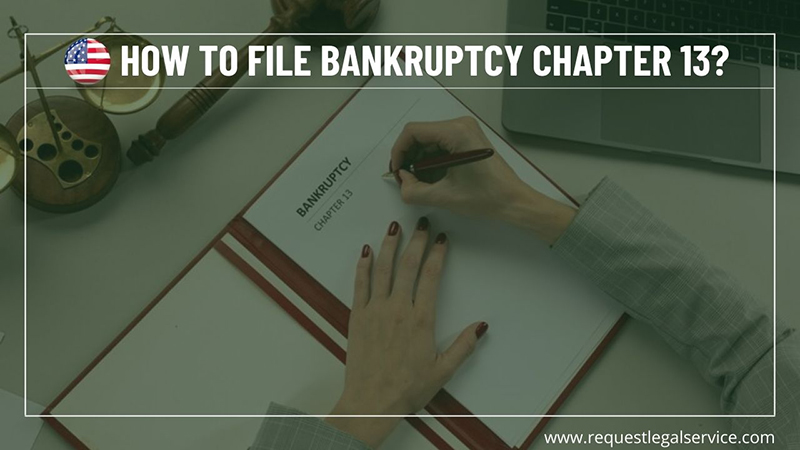
If you are worried about losing everything you own when filing for bankruptcy, then you may want to know about wildcard exemptions, by which you can protect the things you do not want to lose.
The wildcard exemptions under Chapter 7 bankruptcy allows protection to your assets from being liquidated during bankruptcy.
Under other exceptions, such clause may not be valid, which is why wildcard exemptions have immense importance.
In Chapter 7 bankruptcy, you can keep any property that has been exempted.
In case a property is not exempt, then bankruptcy trustees can sell the property to use the proceeds for paying off creditors.
The property type exempted will depend on the state you living. Each state has its exemption obligations and authorizes to protect individual or any items.
To understand if you qualify for wildcard exemptions or not.
How much amount you can request for exemption on which property as per state laws, you can consult a bankruptcy lawyer for useful advice.
REMEMBER THIS BEFORE FILING FOR BANKRUPTCY
Which Items Count in Wildcard Exemptions During Bankruptcy?

Some of the things included in wildcard exemptions are dishes, furniture, clothing, bedding, jewelry, vehicle, ERISA qualified retirement account, equity or assets, etc. Luxury items are mostly not accounted for in exemptions.
States do not have particular exemptions that allow protection to things such as vacation homes, snowmobiles, boards, or other unnecessary property.
However, that does not mean you will have to give up these luxury items. If the state offers you wildcard exemption to protect any property up to a certain amount in dollars, then even these items can be protected.
A bankruptcy lawyer can tell you and find out if the item you want to protect comes under wildcard exemption or not.
Breakdown of Wildcard Exemptions

For example, if your state has a provision for wildcard exemption, then you can have it applied to the otherwise exempt property.
Say, if you have antique furniture worth $2,000, which you wish to keep, and your state does not offer an exemption on furniture, but allow a wildcard exemption of $5,000, then you can apply for a waiver of $2,000 for the furniture in question and keep it.
Now, you would still have $3,000 remaining to apply for another property.
This remaining exemption can be applied to the existing exemption as well.
For example, if you have a vehicle costing $5,000, and waiver on the motor vehicle by your state amounts to only $3,500, but your state provides for a wildcard exemption of $2,000, then you can apply for $1,500 of that amount on your car.
Thus, this way, you can keep the vehicle, as well as get the complete exemption.
Types of Properties to Which the Wildcard Exemptions Apply
Some of the states can legitimize the use of wildcard exemption amount for any property, while other can specify the property for which the same is applied.
For example, some states can permit the application of wildcard to only personal property.
If you do not know fully that an exemption will apply on the property you want to safeguard, consider a bankruptcy lawyer to review your case.
Wildcard Exemption Amount
In a few states, the wildcard exemption is the amount of other property exemption, which you have not utilized.
For example, you may be able to apply an unused burial plot or homestead exemption to another property. Some states do not have wildcard exemption while others have it, which ranges considerably in amount.
A bankruptcy lawyer can help you secure the best wildcard exemption amount. Thus you may want to consult an attorney about it the first.
What is the Value of a Wildcard Exemption?
Most wildcard exemptions is fixed amount, while other states can authorize you to use any unused amount for protecting equities such as a house, bonds, etc.
Some states enable bankruptcy filers to utilize a set of federal bankruptcy exemptions.
The exemptions can cover particular property types such as clothing, household goods, home, car, and the likes.
Few states provide separate wildcard exemption along with an unused portion of the homestead exemption.
Federal Bankruptcy Wildcard Exemptions
The exemption value allowed is $1,250 or up to $11,850 for unused homestead amount under the federal bankruptcy exemptions.
It can be allowable on any property.
You can, however, only use these exemptions if the state provides the choice for the particular exemption.
The federal exemption value changes every three years.
Wildcard Exemptions by States
Connecticut, Kentucky, Hawaii, Alaska, Massachusetts, Arkansas, Minnesota, New Mexico, Michigan, New Hampshire, New York, New Jersey, Pennsylvania, Texas, Oregon, Vermont, Wisconsin, District of Columbia and Washington are some of the states, which adhere to federal bankruptcy exemptions than state exemptions.
However, other states do not oblige by federal bankruptcy exemptions and may not have this clause at all.
The states, which do not have wildcard exemptions, are Colorado, Arizona, California, Louisiana, Kansas, Oklahoma, Montana, Wyoming, and Utah. The dollar limit also differs from state to state.
For wildcard exemption in Idaho, the limit is $800, while in Indiana, it is $9,350; on the other hand, in New Hampshire, $7,000 of unused homestead exemption can allow you to protect any property.
Should You Apply for Bankruptcy Relief?
Filing for bankruptcy relief can help you out of debt and provide a new start for your financial journey.
Look for assistance from a bankruptcy attorney who can approach your case appropriately within the legal parameter of the state you reside.
You need to understand if applying for bankruptcy relief is right for you or not, a decision that an experienced attorney can facilitate understanding about.
The bankruptcy lawyer should be well versed in Chapter 7 and 13-bankruptcy cases, which you may not have complete knowledge about.
So, before arriving at a relevant decision about bankruptcy, meet a certified lawyer today.



